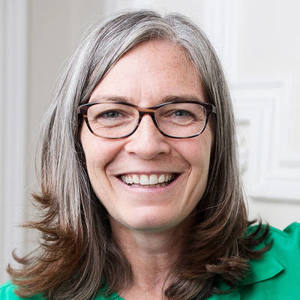Sanger: Solving Global Challenges through Collaboration
Six part Q&A with Dr Julia Wilson, Associate Director, Wellcome Sanger Institute
1. What is the strategic vision of the Wellcome Sanger Institute?
When the Wellcome Sanger Institute was founded 1993, it initially had only one task: sequencing the first human genome. At that time the Sanger was the UK, hub of the global Human Genome Project. In the end, the Institute was the single largest contributor to this 10-year ambition.
Since then, the Sanger Institute has transitioned into a fully-fledged genomics research institute. With 1,100 staff, working in the field of genomics, many working to sequence, read and understand the DNA genetic code. To give a sense of scale, a single human genome has three billion letters of DNA code, and the small differences in these letters equate to the differences in all of us.
The Institute transitioned from reading one human genome to understanding the difference between many genomes, and to use this information to provide new insights into the biology of humans and other organisms, to better understand the causes and progression of human disease. We have vast DNA sequencing capabilities and are one of only a handful of organisations in the world that can do genomic science at this scale. The Institute is fundamentally built on the principle of open science: DNA genome sequences made freely available for other researchers, giving them the opportunity to exploit vast datasets for collective social benefit.
Often our projects are enormous, and can last decades. One example is the Human Cell Atlas: a project to read the genetic code of every cell in the human body (37 trillion) and provide a foundational dataset for every cell in health and disease. By collaborating with partners across the UK, we’re working on The Darwin Project to sequence all of the 70,000 different species in the UK. This is part of a larger global project to sequence all of life on earth, projects like these can help in supporting biodiversity, global ecological conservation, and no doubt will lead to the discovery of new medicines, fuels, and food to benefit society. Like all our research, it will provide those foundational datasets on which to build scientific research in the future. All our software, data and tools are made freely available to the scientific community providing the basis for many other research projects.
2. How does the Institute interact with and support the scientific community?
The Sanger Institute is core-funded by Wellcome, and we use this funding to invest in core-facilities such as our genome sequencing platform. Our scientists can then think of the biggest and boldest projects, ones that can potentially answer some of life’s biggest questions. More than 90% of our scientific publications are done in collaboration with others, and we believe we can only tackle some of these biggest challenges by coming together and collaborating. We have, for example, worked as part of the International Cancer Genome Consortium for many years, which through collaboration across the global community were able to map the genetic faults in 50 of the most important cancer types.
We enjoy deep collaboration with other large organisations. Our key strategic partners include the EMBL-European Bioinformatics Institute, the University of Cambridge and the Francis Crick Institute. We also work closely with partners based at the Wellcome Genome Campus. For example, Open Targets, an innovative multi-year, public private partnership with GSK, Sanofi, BMS, Sanger and EMBL-EBI that uses genetic and genomic data for systematic drug target identification and prioritisation.
All of this is supported by co-location on the Wellcome Genome Campus, where a cohort of around 2,500 people work across organisations like the Sanger Institute and EMBL-European Bioinformatics Institute as well as the Biodata Innovation Centre that houses spin-outs and start-up companies and attracts like-minded companies who are working in the fields of genomics and biodata. This co-location creates connectivity and cohesion, with events like open seminars to disseminate new ideas and best practice. We see movements between organisations, and movement and adoption of technology and management information across the sector. We also operate a conference centre and training facility, designed to bring forward the next generation of genomic scientists.
Collaboration within the Arc and the UK is one aspect, but science is global and we also enjoy international collaborations, particularly with infectious disease programmes, understanding outbreaks of infectious diseases and providing a greater understanding of the patterns and spread of diseases such as malaria.
3. Why is it important that we stand behind and champion genomics research? What is at stake for society, and how does this research advance humanity?
Put simply, the health of the nation. The Sanger Institute provided the proof of principle study demonstrating that genome sequencing was useful in helping diagnose children with developmental disorders and this paved the way for the formation of Genomics England, a British company founded and owned by the Department of Health and Social Care to run the 100,000 Genomes Project.
The human aspect of this research is clear: children with undiagnosed developmental disorders could receive a new diagnosis through genome sequencing. Today we have further projects in inherited genetic disease and in cancer to provide greater understanding of the causes and consequences of changes in the genetic code. All this research and the evidence it generates has future utility and could direct practical impact as it feeds through into clinical practice.
The UK has always been a world leader in genomics, tracing its heritage in this field back to the work of Rosalind Franklin, and Watson and Crick with the discovery of the structure of DNA through to the successful completion of the first human genome. Support from Wellcome and belief in the importance of genomics from successive governments has maintained that position at the forefront, helping the UK to benefit as the first country to implement genomic as routine medicine within the NHS.
There are also clear economic benefits of genomics research with a number of new businesses working in this field that will contribute to the wealth of the nation, both financially and in terms of knowledge. Genomics companies spinning out from Sanger or elsewhere can scale very rapidly, also benefitting the national economy.
On another level, we can take a longer view of the sustainability rewards which could come from genomics research. Particularly as we start to understand the natural world at the genomic level, and use this knowledge across environmental conservation, protection of biodiversity, finding new tools for decarbonisation, as well as understanding ecosystems helping us all to be better custodians of the planet.
4. How does the Sanger Institute help to commercialise research? What sort of partnerships are formed, and how does this collaboration advance scientific research?
Colleagues here run a ‘start-up school’ where staff from all parts of the organisation can apply to attend and learn more about entrepreneurship. We hope that providing our people with a foundation in the process of ideation, regulation, and funding gives staff the sort of training and confidence to go on and potentially start up and commercialise an idea.
The Sanger Institute Translation Office works with scientists to identify projects that could have commercial application. The team provide support and advice to scientists, and they also operate a translation fund to provide funding which allows scientists time and funds to follow a lead, build more data and maybe take an initiative to the next stage. The Translation team also support scientists to explore spinning out a company and with pitching to potential funders.
We also invite senior scientists in co-located businesses on-site to give bench-to-boardroom seminars, to mentor staff, as well as informal coaching and networking to help build that culture of entrepreneurship.
5. Why is the Oxford-Cambridge Arc an important region for innovation?
We benefit from a concentration of talent and skills. Science is insanely collaborative, and you need that critical mass of people. The beauty of the Arc, and the Golden Triangle, is that none of us can solve these world challenges alone: we need collaboration, like the fantastic nation-wide scheme Health Data Research UK, which frees up routinely collected health data for use in research and industry. You can’t make new discoveries with a small sample size, you must extend a hand to others to better society.
This ecosystem isn’t something you can replicate in a day, but something we can all learn from. The Oxford-Cambridge Arc represents decades of accumulated collaboration and starting from scratch anywhere else would require us to rebuild that entire ecosystem.
To succeed in science we need diversity of approach, of ideas, many people coming at the problem from different angles. We equally need that concentration of people, skills, and players in the ecosystem. Scientists are now increasingly comfortable moving from academia to NHS Trusts, or into the private sector and back again, bringing a better understanding of the language and the drivers of all these sectors.
6. How is the Wellcome Sanger Institute changing the world?
One such example of our impact was our recent work initially as part of the COG-UK Consortium to deliver Covid-19 virus genomes to the UK government to understand the spread of disease and help spot new variants. Skilled technical staff working at the Institute created and adapted protocols to rapidly sequence the virus genomes at scale, and then shared these protocols globally for the common good.
We have many years of experience in dealing with millions of samples, and experience of researching vast tomes of genomic data: ready to respond to any crisis and helping to keep the UK at the forefront of scientific research.
Get in touch



